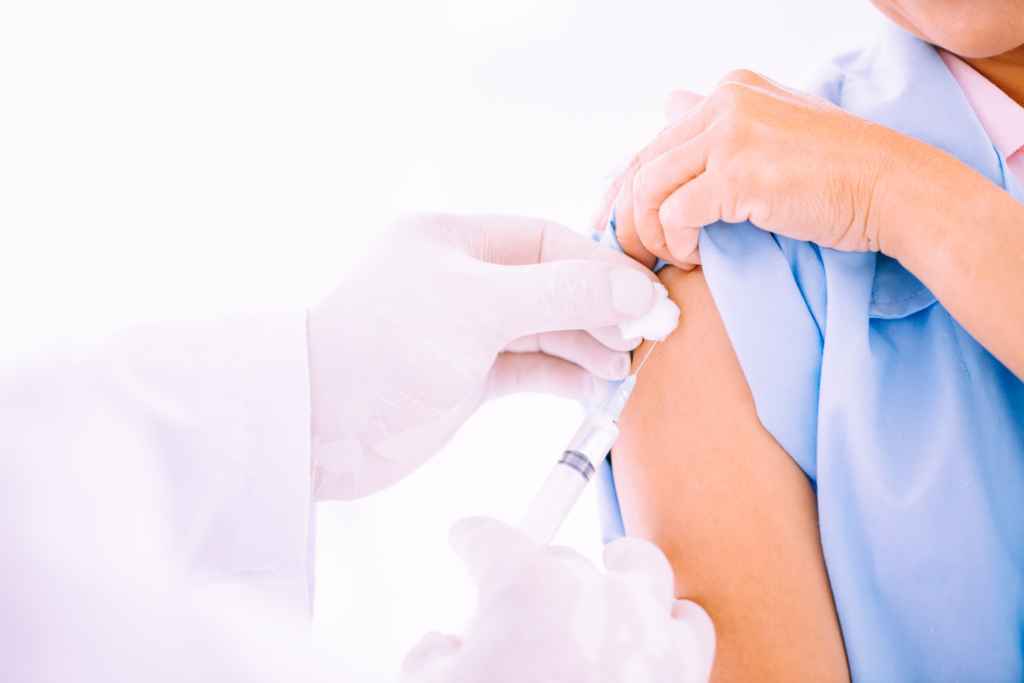Because of the recent of outbreak of measles throughout the United States, including a Ohio’s first case at the beginning of July, individuals are questioning their own immunity to the disease. The staff at Stonewall Jackson Memorial Hospital (SJMH) in Weston has been fielding requests on the subject and will be able to provide some assistance to patients through the SJMH laboratory with direct access testing. The Hospital notes that several of its physician clinics have the measles vaccine if needed.
The Center for Disease Control and Prevention reports that from January 1 to July 11, 2019, 1,123 individual cases of measles have been confirmed in 28 states. This is an increase of 14 cases from the previous week and is the greatest number of cases reported in the U.S. since 1992 and since measles was declared eliminated in 2000. Though there are no reported cases in West Virginia.
The U.S. experienced 17 outbreaks in 2018. Three outbreaks in New York State, New York City, and New Jersey, respectively, contributed to most of the cases. Cases in those states occurred primarily among unvaccinated people in Orthodox Jewish communities. These outbreaks were associated with travelers who brought measles back from Israel, where a large outbreak is occurring. Eighty-two people brought measles to the U.S. from other countries in 2018. This is the greatest number of imported cases since measles was eliminated from the U.S. in 2000.
The Center also points out:
- The majority of people who get measles are unvaccinated.
- Measles is still common in many parts of the world including some countries in Europe, Asia, the Pacific, and Africa.
- Travelers with measles continue to bring the disease into the U.S.
- Measles can spread when it reaches a community in the U.S. where groups of people are unvaccinated.
Before implementation of the national measles vaccination program in 1963, measles occurred in epidemic cycles and virtually every person acquired measles before adulthood (an estimated 3 to 4 million persons acquired measles each year). Approximately 500,000 persons with measles were reported each year in the United States, of whom 500 persons died, 48,000 were hospitalized, and another 1,000 had permanent brain damage from measles encephalitis. This is a serious disease.
Some people should not get MMR vaccine or should wait.
Tell your vaccine provider if the person getting the vaccine:
- Has any severe, life-threatening allergies. A person who has ever had a life-threatening allergic reaction after a dose of MMR vaccine, or has a severe allergy to any part of this vaccine, may be advised not to be vaccinated. Ask your health care provider if you want information about vaccine components.
- Is pregnant, or thinks she might be pregnant. Pregnant women should wait to get MMR vaccine until after they are no longer pregnant. Women should avoid getting pregnant for at least 1 month after getting MMR vaccine.
- Has a weakened immune system due to disease (such as cancer or HIV/AIDS) or medical treatments (such as radiation, immunotherapy, steroids, or chemotherapy).
- Has a parent, brother, or sister with a history of immune system problems.
- Has ever had a condition that makes them bruise or bleed easily.
- Has recently had a blood transfusion or received other blood products. You might be advised to postpone MMR vaccination for 3 months or more.
- Has tuberculosis.
- Has gotten any other vaccines in the past 4 weeks. Live vaccines given too close together might not work as well.
- Is not feeling well. A mild illness, such as a cold, is usually not a reason to postpone a vaccination. Someone who is moderately or severely ill should probably wait. Your doctor can advise you.












